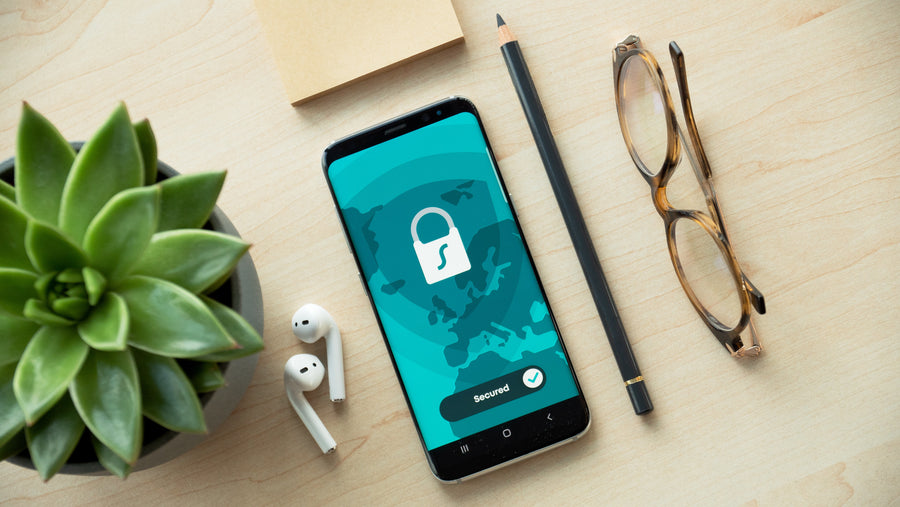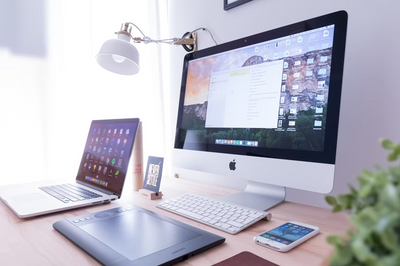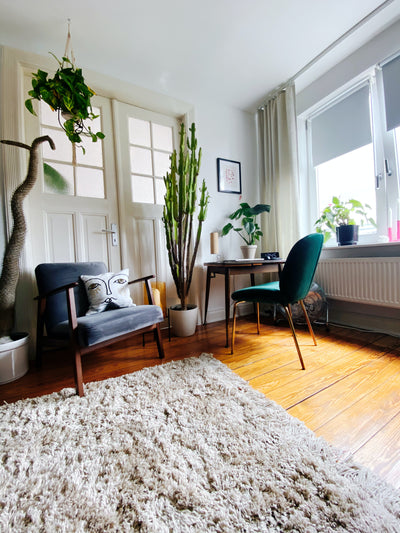10 ways to start protecting your digital privacy

“If you have alarm systems and locks on your doors,” says Conscious Spaces founder Tara Williams, “then you should also be aware of the need to keep your data and privacy safe. Computers and phones need virtual ‘locks’ too.”
From monitoring your banking credentials to stealing private pictures and reading your messages, digital viruses and cyber hacks can access sensitive information.
In our last article, Cybersecurity: How private is your personal life? we explored the growing problems with our hyper-digitalised lives. Now, we’re providing some solutions. Whether it’s the most innovative new data-securing products or the internet browser that blocks online surveillance, read on for ten simple ways to protect yourself from cybercrime and surveillance.
1. Try TOCA® products
TOCA®, the latest brand to join Conscious Spaces, make thoughtful products designed to protect your data, privacy and health. Here’s a few of our favourites (and why we love them), which you’ll find in the Conscious Spaces shop:
TOCA® Smart Pouch
A sleek and super-useful pouch to tote when you’re travelling or out and about, TOCA’s Smart Pouch is designed to hold smartphones, bank cards and passports. With its foldable Faraday cage, the pouch blocks GPS, Wi-Fi, RFID, NFC, 3G, 4G, 5G, Bluetooth and calls, helping to secure your data privacy while also protecting your body from radiofrequency radiation and freeing you from distractions.
Did you know that even on airplane mode, the GPS stays on and your phone’s location can still be tracked? And even with your phone 'off', data can eventually be sent to the cloud for analysis. The TOCA® Smart Pouch helps you block any and all unwanted tracking or surveillance.
TOCA® Microphone Blocker
Plug the counter-surveillance TOCA® Microphone Blocker into your mobile phone, computer or tablet to keep your conversations private and your personal freedoms protected. The Blocker blocks incoming signals to secure your device’s microphone and prevent cyber attackers from using your microphone to listen in on you.
TOCA® Camera Blocker
With ex FBI Director James Comey admitting that he covers his laptop webcam with a piece of tape to safeguard his privacy, the TOCA Webcam Cover Slide feels like a sensible addition. Use your finger to slide open and close the ‘blackout window’ in front of your camera and take control of who sees you.
2. Steer clear of snooping smart devices
From Amazon’s Alexa to Google’s cosily-named Nest products, microphone-equipped smart products can listen in to your conversations and keep a log of your voice recordings for later analysis.
To counter this intrusion, stick to regular, non-voice-activated speakers, and plug the TOCA Microphone Blocker into your mobile phone, computer or tablet to keep your personal life private.
3. Create secure passwords
It’s something we all know we should do, and yet it’s dangerously easy to put off: use more secure passwords.
While a stronger password isn’t a silver bullet against security breaches, it certainly makes for a much sturdier line of defence. Rather than the usual four digits (date of birth, anyone?), use a longer – ideally 16 characters or more – password with a mix of letters, numbers and special characters. Don’t use the same password for different accounts, and avoid including your personal information, like pet names or children’s ages, which can be easily accessed on the internet. To go extra-secure, use a password management tool or consider multi-factor authentication methods.
4. Be alert to phishing scams
Phishing is a type of scam that tricks[1] businesses and individuals into believing a message (usually a text or email) is from a trustworthy, familiar source. Once the target engages, by opening an app, downloading a file or entering personal information (such as banking passwords or credit card data), the scammer can steal your confidential details. To avoid phishing scams, always double-check the identity of any site or organisation that asks you for sensitive info and never download or install software or open attachments from a source that you don’t completely trust. Tell-tale giveaways that something – quite literally – fishy is afoot include a misspelt domain name or no installed security certificate (SSL).
5. Look into more secure ways of communicating online
Developed by a team of scientists, engineers and developers with a shared vision of protecting civil liberties online and fighting cyberattacks, ProtonMail is the world’s largest secure email service. Free and simple to use, it boasts built-in end-to-end encryption and advanced security features.
6. Try the Brave Browser
Internet browser Brave stops online surveillance, blocks ads, stops trackers, loads content faster AND uses 35% less battery. What’s not to like?!
7. Should you opt for iPhone over Android?
While no smartphone is 100% secure, some cyber experts prefer the iPhone – noting that most mobile hack attacks target Android phones.
Recent academic research has also revealed that google collects 20 times more telemetry data from Android devices than Apple from iOS.[2] The kind of data harvested ranges from when a user’s location is enabled, to when a SIM is inserted or removed, and is still transmitted even when you’re not logged in.
Professor Douglas J. Leith, the scientist behind the research, said[3] that this data collection raises two key concerns. First, the ability to link physical devices to personal details – and go on to exploit those details for advertising purposes. And secondly, that the data collection process allows the phone makers to track users’ location.
8. Avoid public Wi-Fi spots
Did you know it’s possible to hack a public Wi-Fi router (say, in a coffee shop or town square), and then offer a fake Wi-Fi network with the same name, sneakily jeopardising your data security and privacy? While this may sound far-fetched, it happens. Avoid public Wi-Fi networks if at all possible to side-step any issues.
9. Rethink your social media use – and maybe even your smart phone too
If you want to get serious about protecting your privacy, as unthinkable as it may seem, it’s worth reigning in your use of social media. Or, you could look into alternative social media platforms that use encryption to keep messages secure (of course you could also opt out all together!).
Time and time again, we hear of social media platforms harvesting personal data and mining human experience to target users with invasive messages and advertising in what’s known as ‘surveillance capitalism’. Not satisfied with using our details to sell us things we don’t want or need, social media companies manipulate our psychology to extract and exploit our thoughts and feelings. The less information you feed these tech giants, the greater your control over your identity.
While you’re at it, switching from a smartphone to a simpler, non-internet-enabled mobile would make a world of difference to your attention span, tranquillity and privacy. Keen to make the change? You could try the Mudita Pure phone. Focusing only on the features you need while ditching the blue light and reducing EMFs, the Mudita relieves you of unwanted distractions and allows you to enjoy life – offline. Who knows, smartphone-free life may even boost your brain power.
10. Change the app download settings on your computer
Follow these simple steps on your Mac to help ease the threat of malicious downloads. Click on the Apple sign in the top left-hand corner of your screen and choose ‘System Preferences’. Now click on ‘Security & Privacy’ and choose the ‘General’ tab. At the bottom, there’s a setting titled ‘Allow apps downloaded from’. The default setting here is to allow apps downloaded from ‘App Store and identified developers’. Change this to ‘App Store’ only, to ensure you’re only downloading apps approved by Apple.
References
[1] https://www.computerworld.com/article/3041073/surprising-tips-from-a-super-hacker.html
[2] https://www.scss.tcd.ie/doug.leith/apple_google.pdf
[3] https://therecord.media/google-collects-20-times-more-telemetry-from-android-devices-than-apple-from-ios/











































